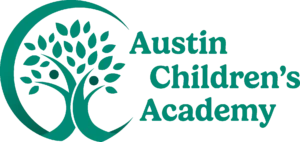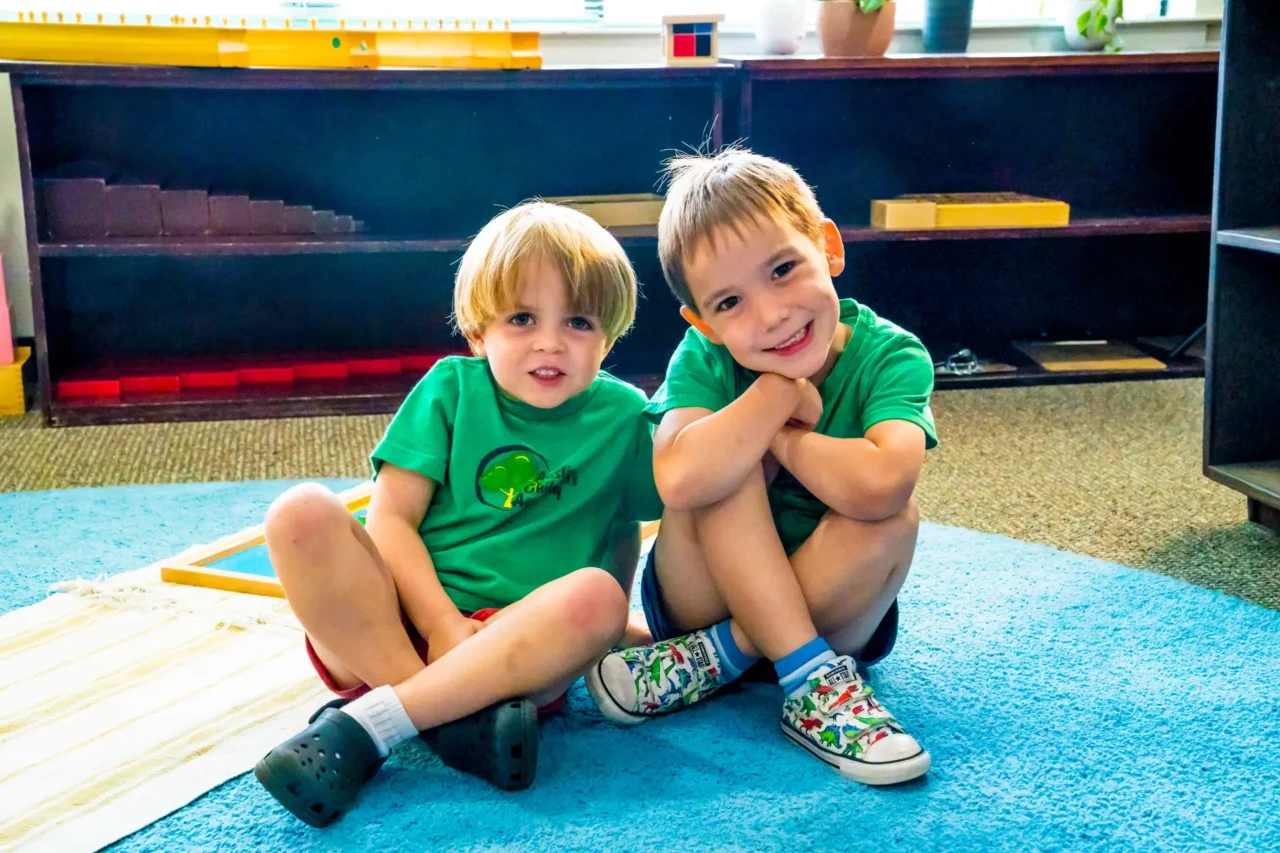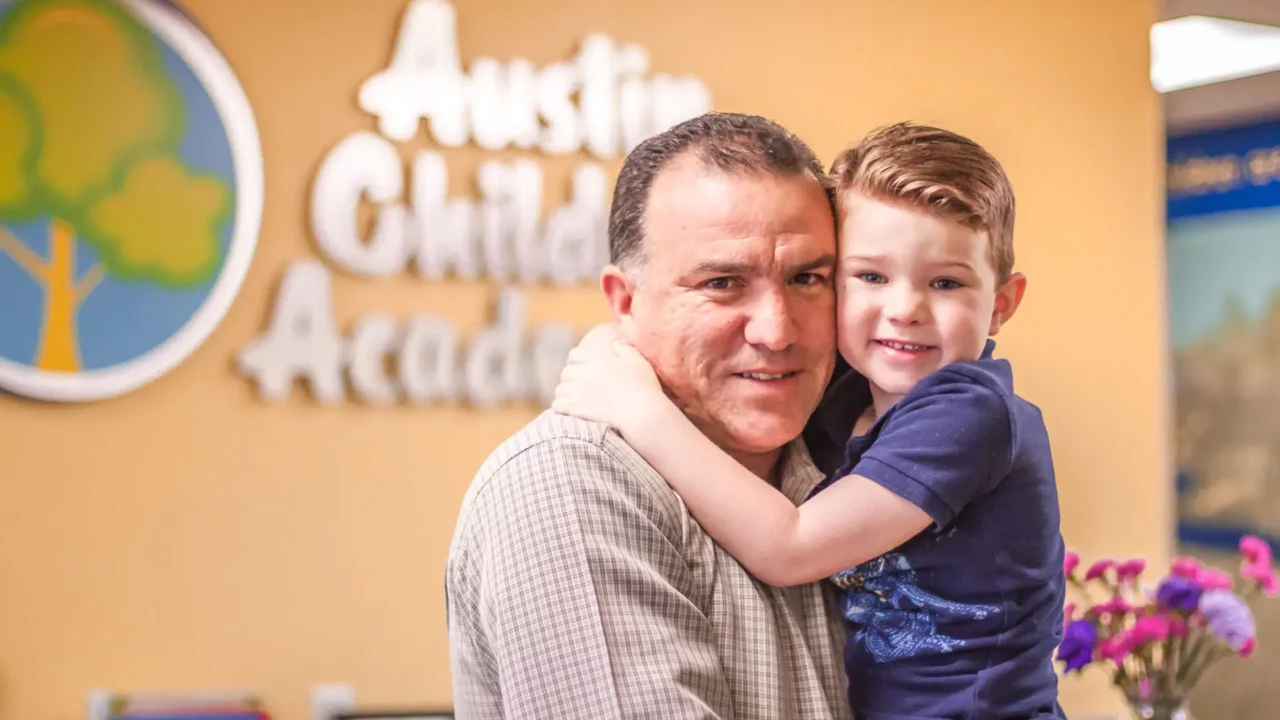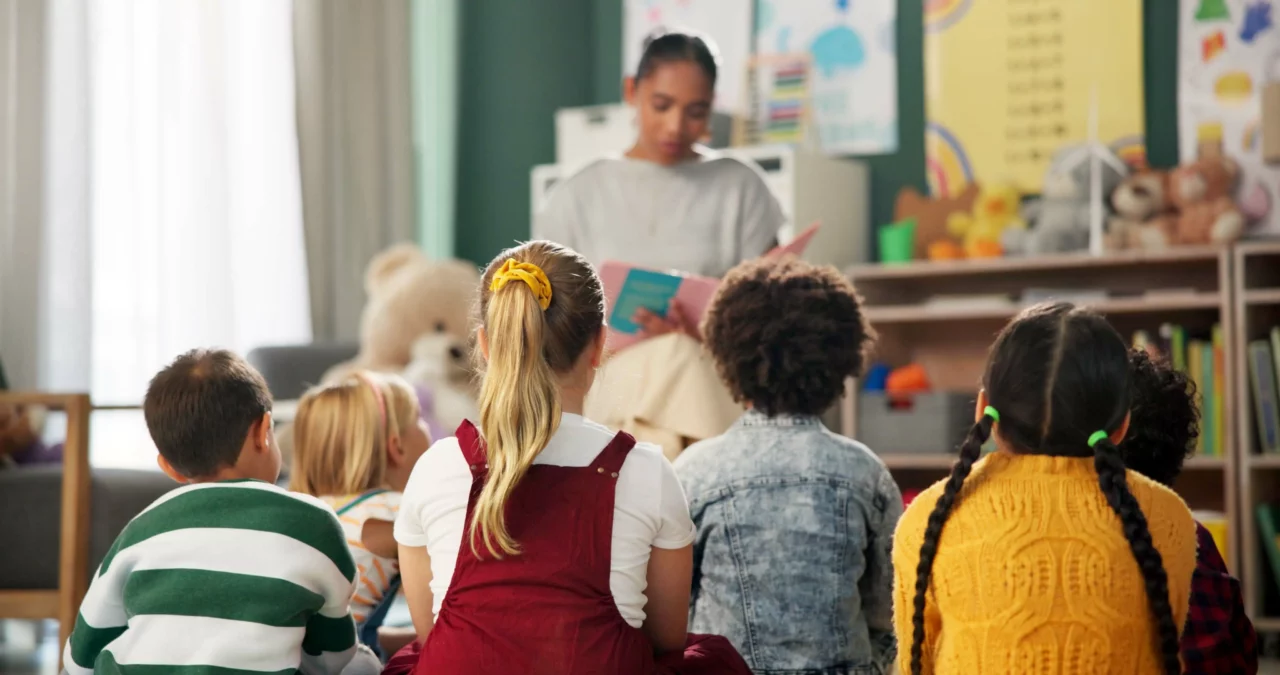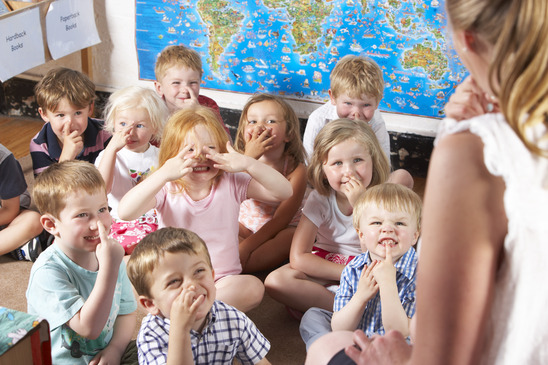
It takes a special person to become a Montessori educator. This teaching method emphasizes the heightened learning ability of children when they’re allowed to make their own choices. It was developed by Dr. Maria Montessori in the early 20th century to improve children’s education by helping them help themselves. Today’s Montessori teacher training revolves around absorbing this method of guiding young minds. There are five characteristics that parents should look for in educators when they’re choosing a Montessori school for their children.
1. Sets A Great Example
Children love to mimic what they see and hear. It’s part of the learning process. Montessori teachers lead by example, making it easier for kids to understand how things work. These educators are constant role models, setting a great example for students in behavior, communication and orderliness.
The primary way that a Montessori teacher becomes a role model is by treating all children with serious respect as individuals. A Montessori teacher understands that rampant curiosity is a child’s superpower. By thoughtfully harnessing that power through empathic listening and keen observation, a teacher can most effectively direct that curiosity onto productive paths. Thus, children learn that their curiosity is vital, respected, and an important part of their growing selves. They also learn that the teachers care about their interests and can teach them fun and fascinating things. In a Montessori classroom, this is how mutual trust and respect grows.
2. Observes Carefully
A Montessori teacher uses techniques very different from what you, as a parent, may be used to in a traditional classroom. In a Montessori classroom, there are no rows of seats facing a blackboard. Very rarely does a Montessori teacher stand up and lecture for great lengths of time. Indeed, the Montessori philosophy does set up academic milestones for a child’s advancement, but the teaching itself isn’t done “top-down” through multiple quizzes, test, and note-taking lessons, but from more of an organic “bottom-up” philosophy, taking cues from the children themselves to direct individualized instruction.
One of the fundamentals of the Montessori teaching method is that children progress at their own pace. Good observers can guide students in the right direction with the right materials. They can also sense more clearly when children are ready to master a skill and move onto the next level. The ability to carefully observe and guide instead of simply disciplining and taking charge is an important difference between the Montessori classroom and a traditional preschool or daycare.
3. Becomes a Link
In a Montessori school, even the toys are different. Wisely crafted, colorful, and eye-catching, these toys may seem like simple playthings to the casual observer (and the child), but each one has been designed for a learning purpose. Lovely golden beads can be strung on wires to guide older children into understanding the decimal system. Colorful cubes and prisms teach visual shape and color discrimination. A button frame allows a toddler to focus on small motor skills. As a bonus, the toddler can see immediately if the buttons are done up incorrectly, so he can gain independence by fixing it himself.
Educators are taught during Montessori teacher training that their primary role is to become the link between the children and their learning materials. Teachers conduct presentations to the students which creates the connection of curiosity and child interaction. Parents considering which Montessori school to choose should look for teachers who can communicate well with children and where all of their classroom materials are easily accessible for a child.
4. Thrives on New Discoveries
People who love to learn thrive on new discoveries. Educators who effectively teach children to enjoy the learning process are also ready to learn new things. Children and teachers can learn from each other in the Montessori environment. The founder of this teaching (Dr. Maria Montessori) method was an avid learner who enhanced her own knowledge base and studies while working with vast array of children.
Not only do Montessori teachers learn from their students, but they’re also involved in continuing professional growth. In fact, The American Montessori Society requires that certified teachers take thirty to fifty hours of continuing education every three to five years, depending on when certification was issued, in order to continue to hold credentials. The topics covered range from curriculum, child development, classroom management, social or emotional issues, and special education to tech training and educational policy. These requirements keep Montessori educators curious, engaged, and at the leading edge of their profession.
5. Learns from Mistakes
If you’ve been to a high school or college graduation recently, you may have noticed that the topic of many a commencement speech focuses on the importance of “accepting failure.” Professionals at the top of their fields understand that making mistakes is a given and failure is inevitable. How a person reacts to failure is the defining feature of some of the most productive and inspiring people, who have overcome great odds by not letting failure daunt them. It’s no mistake that Larry Page and Sergey Brin of Google, and Jeff Bezos of Amazon have this in common: They all went to Montessori schools.
The Montessori philosophy revolves around encouraging children not to be discouraged by mistakes, but rather to be galvanized into correcting them on their own, with gentle guidance from the teachers.
It’s important to guide children to understand that mistakes happen, and that mistakes can be learning tools. Montessori-trained teachers practice what they teach. Learning from mistakes can help them improve the classroom experience for children.
6. Embraces Special Training
Aside from having special characteristics to be a Montessori teacher, these educators must also complete at least a bachelor’s degree before pursuing Montessori training. The professional requirements to be a teacher are different in each state and can vary according to the age group taught. People with a college degree are eligible for an accredited Montessori teaching program that can take either one year or two consecutive summers to complete. A year-long teaching internship is also required before a teacher is considered for a Montessori school.
7. Encourages Initiative, Independence, And Self-Reliance
Montessori teaching encourages self-reliance in children from a very early age by training teachers to be guides in each child’s journey to academic success. A Montessori teacher knows when to intervene and demonstrate and when to step back and allow the child to learn from his own mistakes. A child who learns through trial and error (and gentle guidance) how to zip, fasten buttons, and tie a knot will soon be dressing himself on his own, proud of what he’s learned.
This focus on learning through trial and error and taking mistakes in stride has domino-like consequences. Pride in one’s own successes breeds confidence. Confidence breeds boldness and independence. Independence leads to self-reliance. These qualities are difficult to “teach” by any other method than trial-and-error by one’s own hands. They are qualities of character that will help children no matter what they choose do in the world.
8. Encourages Creativity
When a child is enthusiastic about something, he or she doesn’t need to be nagged, nudged, or stressed to learn more about it. Creativity is the engine of innovation. Montessori teachers, based on sharp observation and daily record-keeping, maintain specialized and individual teaching plans and goals for each child in the classroom. These plans help move the children toward new academic, social, and developmental milestones. But a Montessori teacher doesn’t force a child toward those milestones. Instead, he or she uses the child’s own curiosity and innate, boundless creativity as the fuel to propel the student well past those milestones.
Back when the Montessori philosophy was still being developed over a century ago, Maria Montessori’s methods were a radical change from the standard forms of education of the time. But Maria Montessori’s philosophy was not a theoretical one, but a philosophy developed from years of empirical observation of students in the classroom. Now it’s considered a tried-and-true method of childhood education and Montessori schools have spread all over the world.
If you’re considering a Montessori school for your child, indulge your natural curiosity. Learn more about the educational philosophy, talk to fellow parents who have enrolled their own children, and observe an active classroom. Most of all, spend some time talking to our teachers. They are Maria Montessori’s true heirs, continuing to learn on a daily basis the joys, challenges, and new adventures that their students bring to the classroom.
